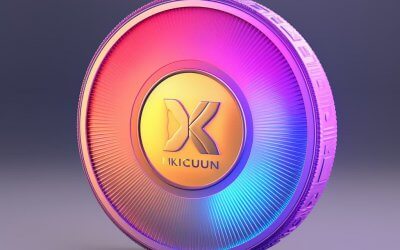Our Blog
Differences Between Ethereum 1.0 And Ethereum 2.0
Ethereum 1.0 is the original version of the Ethereum blockchain that uses Proof of Work (PoW) for transaction confirmation. On the other hand, Ethereum 2.0 is an upgrade to the existing Ethereum blockchain that implements Proof of Stake (PoS) consensus model.
Flash Loans: Ethereum’s Unique Defi Feature
One major risk associated with flash loans is the vulnerability to exploits and hacks. As flash loans heavily rely on smart contracts, any vulnerabilities in the code can be exploited by malicious actors to manipulate or steal funds.
Bitcoin Node Diversity Explained: The Importance Of Different Implementations
Bitcoin nodes play a crucial role in maintaining the integrity, security, and decentralization of the Bitcoin network. They validate transactions, store the blockchain, and broadcast information, contributing to the overall health and resilience of the system.
Crypto Cold Storage Art: Physical Coins Nfts And Paper Wallets As Collectibles
Crypto cold storage art combines the worlds of cryptocurrency and collectibles, offering unique physical coins, NFTs, and paper wallets as valuable assets for collectors.
UTXO Vs. Account-Based: Unraveling Bitcoin’s Unique Transaction Blueprint
The two most popular bookkeeping methods in the blockchain space are the UTXO and account-based models. These methods represent two fundamentally different ways of processing and recording transactions.
Lightning Network Micropayments: Benefits And Challenges
The Lightning Network brings faster and cheaper transactions, allowing website owners to receive micropayments with negligible fees and reduced waiting times.
Bitcoin Dust: What It Is And How To Consolidate
Bitcoin dust refers to tiny output coins that are generated by the Bitcoin protocol. While these tiny amounts may seem insignificant, they can have a negative impact on the performance of the Bitcoin system.
Bitcoin In Space: Satellite Nodes And Extraterrestrial Bitcoin Transactions
Satellite nodes enhance security and reliability: By utilizing satellite nodes in the Bitcoin network, the security and reliability of blockchain transactions can be improved.
Stratum V2 What And How Does It Help Bitcoin Mining
Stratum V2 is a new mining protocol in the world of Bitcoin that revolutionizes the way we mine. It is a set of rules for transmitting data between electronic devices, ensuring efficient and reliable digital communication.
Ethereum And Its Competitors: How Do Other Smart Contract Platforms Compare?
Developers seek alternatives to Ethereum due to scalability concerns and high transaction fees, motivating the exploration of other smart contract platforms.
Bitcoin Address Reuse: Dangers Of Reusing A Bitcoin Address More Than Once
Bitcoin address reuse poses security and privacy risks: Reusing a bitcoin address multiple times makes it easier for hackers to connect transactions and track your financial history, compromising your security and privacy.
Is Kucoin Banned In Ontario Or Is Legal In 2023?
Before the ban, Kucoin was a top crypto hub in Canada, offering features such as leverage trading, crypto derivatives, NFTs, crypto staking, and lending/borrowing of crypto assets.
5 Best Ways To Buy Crypto With A Credit Card In Canada 2023
step-by-step guidelines on how to buy cryptocurrency using a credit card, including selecting a reliable cryptocurrency exchange platform, creating an account, verifying identity, and completing the transaction.
How To Buy Crypto In Your TFSA In Canada 2023
Buying crypto in your TFSA provides several benefits, including potential tax-free growth and the ability to diversify your portfolio with a high-growth asset class.
Tracing The History Of Ethereum Network Upgrades – A Comprehensive Timeline
Ethereum’s history began in 2013 when Vitalik Buterin published the Ethereum Whitepaper, outlining innovations such as smart contracts and decentralized applications.
The Sec Vs Ripple: Implications For XRP
XRP’s status as a security or a currency will determine its future market dynamics
Understanding XRP’S Consensus Protocol: How It Differs From Bitcoin’s Proof-Of-Work
XRP’s consensus protocol, known as the Ripple Protocol Consensus Algorithm (RPCA), differs from Bitcoin’s proof-of-work in that it does not rely on miners competing to solve complex mathematical problems.
XRP And Cross-Border Payments: How Ripple Is Shaping Global Transactions
Traditional cross-border payments are often slow, costly, and burdened with intermediaries such as correspondent banks.
XRP Vs Swift: Can Cryptocurrency Replace Traditional Banking?
The SWIFT system, although widely used, has limitations and drawbacks such as high costs, lengthy settlement times, lack of transparency, and high error rates.
Understanding Ripple’s ODL (On-Demand Liquidity) And XRP’s Role In It
On-Demand Liquidity (ODL) is a unique liquidity management solution provided by RippleNet that allows for instant, efficient cross-border money transfers without the need for pre-funding.
Understanding XRP: A Comprehensive Guide For Beginners
With its focus on faster cross-border transactions and reduced transaction costs, Ripple has gained significant attention in the financial sector.
Comparing Cryptocurrencies: Xrp Vs Bitcoin
XRP and Bitcoin have both gained popularity as cryptocurrencies, but they have distinct differences. Read about them here.
Best Crypto Exchanges In Ontario Now That Binance Is Banned
The ban on Binance has led to a need for alternative crypto exchanges in Ontario. This article provides information on the best options available in the region.
XRP Ruled Not A Security in 2023 – Price Blasts Off
XRP, the cryptocurrency, experiences a surge in value following the ruling that it is not categorized as a security. This significant development has major implications for its market position and investor sentiment,






















